
Agriculture and Crops
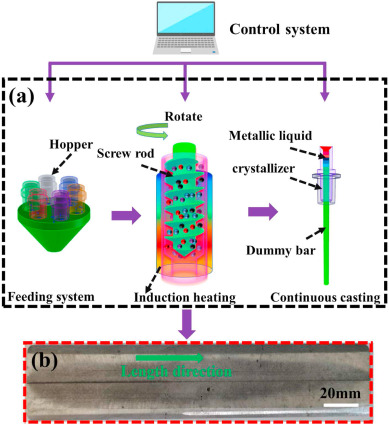
Investigation on microstructures, mechanical properties, and corrosion behavior of novel biodegradable Zn-xCu-xTi alloys after hot rolling fabricated by self-developed newly gradient continuous casting
The poor mechanical properties exhibited by pure Zn effectively prohibit its utilization as a viable material for biodegradable implants. Hence, the primary area of interest has been directed towards alloy design and process strategies of biodegradable Zn alloys. To this end, novel biodegradable Zn-xCu-xTi (Cu: x = 0.001–2.72 and Ti: x = 0.03–1.21) alloys were designed and fabricated using a gradient continuous casting method followed by homogenization and rolling. The fabricated samples were then investigated in terms of their microstructures, mechanical properties, and corrosion behavior
A superb mechanical behavior of newly developed lightweight and ductile Al0.5Ti2Nb1Zr1Wx refractory high entropy alloy via nano-precipitates and dislocations induced-deformation
The lightweight refractory high entropy alloys (RHEAs) can be considered the best alternative to Ni-based superalloys, which has significantly increased the attention of researchers. In this study, the newly designed lightweight (ρ ∼ 6.2 g/cm3) Al0.5Ti2Nb1Zr1WX (X: 0, 0.3, 0.5, 0.7) RHEAs were prepared. Our results evidence that the microstructure of Al0.5Ti2Nb1Zr1W0.5 RHEA has a BCC structure merged with B2 nano-precipitates, which leads to significant improvement in the specific yield strength (SYS) compared with other RHEAs. Besides, the compressive SYS (σ0.2/ρ) of Al0.5Ti2Nb1Zr1W0.5 RHEA
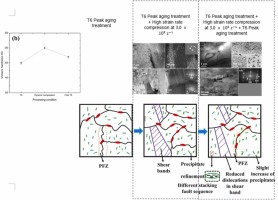
Enhancing mechanical properties of Al-Zn-Mg-Cu alloys: The impact of high strain rate compression and subsequent heat treatment on microstructural evolution
This study presents a comprehensive examination of the Al-Zn-Mg-Cu alloy, focusing on the effects of high strain rate dynamic compression and heat treatment on its performance. The research aimed to understand the underlying microstructural mechanisms contributing to the enhanced mechanical properties of the alloy, which is critical for applications in aerospace and automotive industries. High strain rate dynamic compression tests, conducted at 3.0 × 1000 s−1, revealed a significant increase in both yield strength and ultimate compression strength of the Al alloy, which was accompanied by a
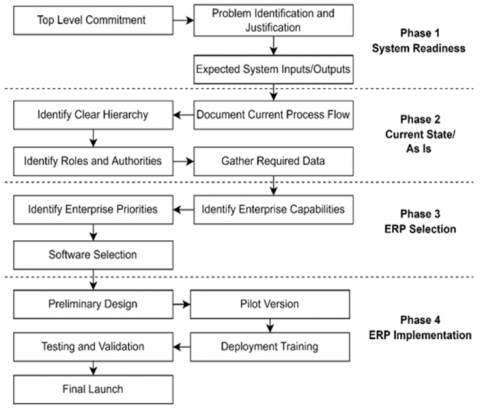
Novel Integrated Framework for ERP Selection and Implementation
As the economic pressure on businesses increases, organizations try to adopt innovative technology solutions to cope with this pressure and adapt to the rapid market changes. Particularly for small and medium enterprises (SMEs). They must integrate all resources and information levels to highly utilize their limited resources and survive the local and global competition. This could be achieved by adopting the best suitable Enterprise Resource Planning (ERP) system. On the other hand, properly selecting and implementing the right ERP system is challenging for many reasons. Hence, this paper
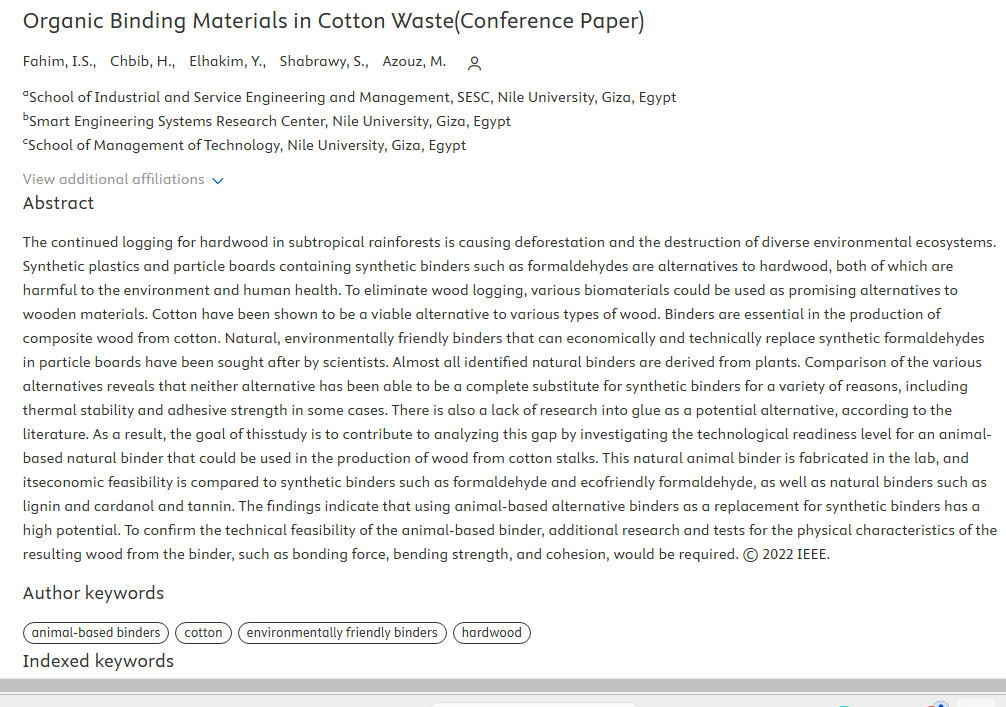
Organic Binding Materials in Cotton Waste
The continued logging for hardwood in subtropical rainforests is causing deforestation and the destruction of diverse environmental ecosystems. Synthetic plastics and particle boards containing synthetic binders such as formaldehydes are alternatives to hardwood, both of which are harmful to the environment and human health. To eliminate wood logging, various biomaterials could be used as promising alternatives to wooden materials. Cotton have been shown to be a viable alternative to various types of wood. Binders are essential in the production of composite wood from cotton. Natural
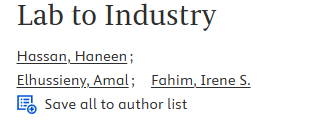
Lab to Industry
In terms of environmental and socio-economic benefits, the utilization of agro-fiber wastes in pulp-based product manufacturing is advantageous. Non-wood plant pulp production has shattered, and numerous non-wood fiber resources are being commercially used to make chemical pulp and paper in China, India, Latin America, Africa, the Middle East, and Turkey. Agricultural wastes, including rice and wheat straws, sorghum stalks, and annual plants like hemp and jute, are being utilized as raw materials for pulp and paper manufacture. In addition, various research has been carried out to introduce
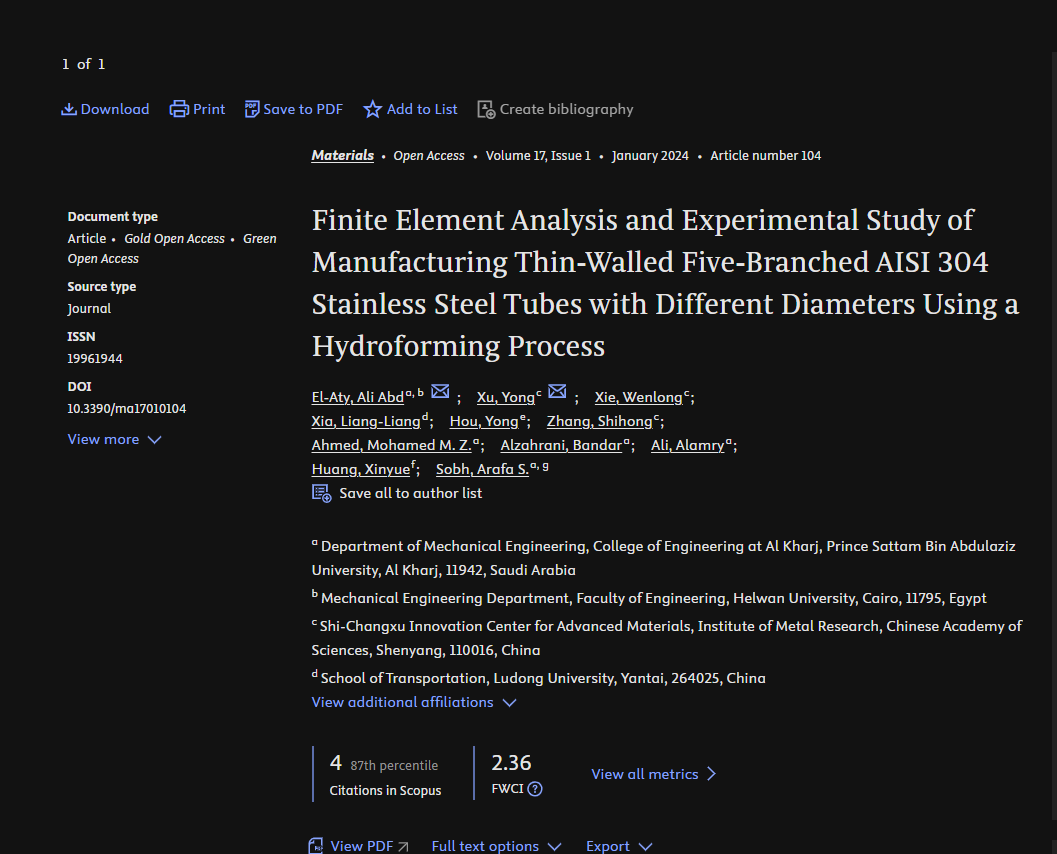
Finite Element Analysis and Experimental Study of Manufacturing Thin-Walled Five-Branched AISI 304 Stainless Steel Tubes with Different Diameters Using a Hydroforming Process
This study aims to investigate the feasibility of hydroforming (HF) technology coupled with response surface optimization for producing high-quality five-branched AISI 304 stainless steel tubes with different diameters, addressing the shortcomings of traditional manufacturing processes. Conventional techniques often result in issues with multiple consumables, low precision, and subpar performance. The research focuses on finding optimal forming parameters for a more effective process. Initial attempts at a five-branched tube proved unfeasible. Instead, a multi-step forming approach was adopted
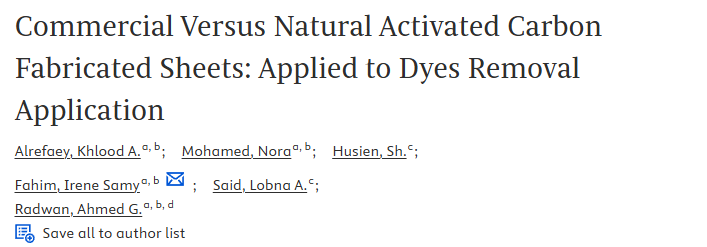
Commercial Versus Natural Activated Carbon Fabricated Sheets: Applied to Dyes Removal Application
Industrial dyes are considered one of the main causes of increased water pollution of water. Many businesses, such as steel and paper, are located along riverbanks because they require large amounts of water in their manufacturing processes, and their wastes, which contain acids, alkalis, dyes, and other chemicals, are dumped and poured into rivers as effluents. For example, chemical enterprises producing aluminum emit a significant quantity of fluoride into the air and effluents into water bodies. Fertilizer facilities produce a lot of ammonia, whereas steel plants produce cyanide. Many
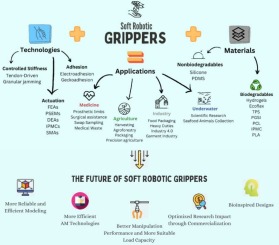
Soft robotic grippers: A review on technologies, materials, and applications
The growing need for manipulators capable of handling delicate objects with care and coexisting safely with humans has brought soft robots to the forefront as a practical and cost-effective solution. In this context, this paper aims to explore soft grippers, a unique and versatile subset of soft robots. It provides an overview of various soft grasping techniques and materials, highlighting their respective advantages and limitations, along with showcasing several designed and tested models. As medicine and agriculture are acknowledged as pivotal domains required for basic human survival, this
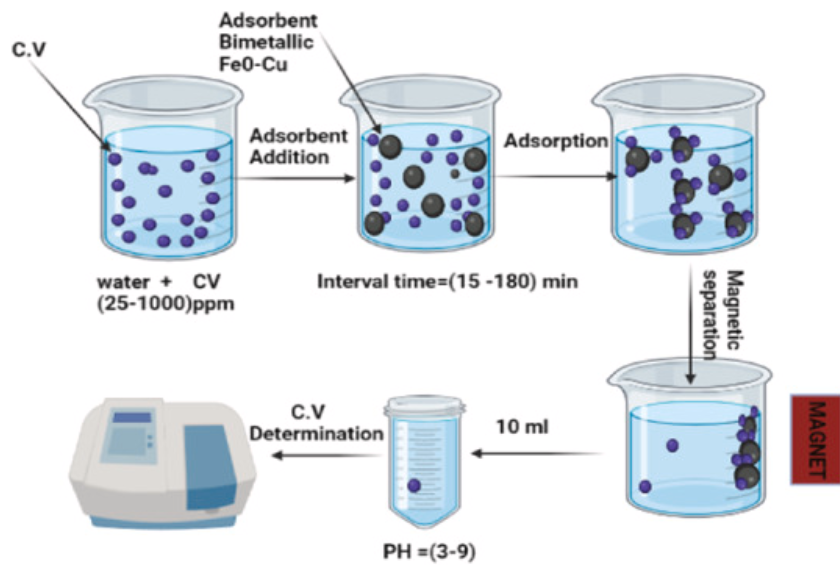
Crystal violet removal using bimetallic Fe0–Cu and its composites with fava bean activated carbon
Nano zero-valent iron (nZVI), bimetallic nano zero-valent iron-copper (Fe0– Cu), and fava bean activated carbon-supported bimetallic nano zero-valent iron-copper (AC-Fe0-Cu) are synthesized and characterized using DLS, zeta potential, FT-IR, XRD, and SEM. The maximum removal capacity is demonstrated by bimetallic Fe0–Cu, which is estimated at 413.98 mg/g capacity at pH 7, 180 min of contact duration, 120 rpm shaking speed, ambient temperature, 100 ppm of C.V. dye solution, and 1 g/l dosage. The elimination capability of the H2SO4 chemical AC-Fe0-Cu adsorbent is 415.32 mg/g under the same